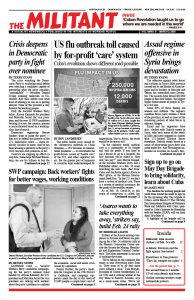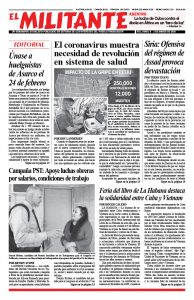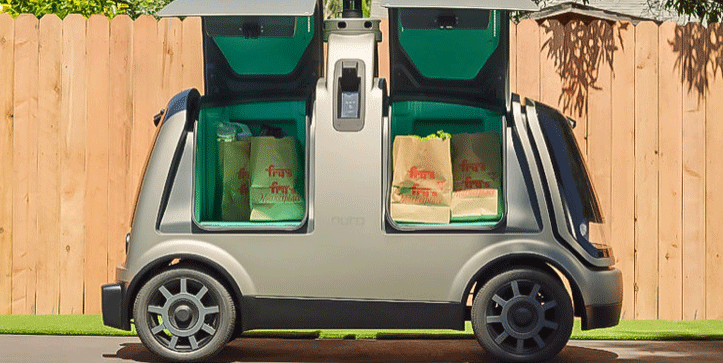While Amazon is gearing up to begin drone deliveries directly to customers’ doorsteps, Walmart has partnered with robotics company Nuro and is building self-driving vehicles to deliver groceries. They plan to run these vehicles in Houston early this year.
These retail behemoths are locked in cutthroat competition to speed up processing orders and making deliveries. They hope to deal blows one against the other as well as to maximize profits off workers’ backs. And Walmart’s computer-driven delivery vehicles could pose a serious safety hazard to working people as they scurry around our cities and towns.
In February, the National Highway Traffic Safety Administration granted approval to Nuro to operate its robotic vehicles, and to do so without having to meet federal safety standards that apply to cars and trucks driven by humans. Nuro’s vehicles won’t have side and rear-view mirrors, nor windshield wipers, steering wheels or brake pedals, as well, of course, no people.
They are equipped with laser, camera and radar sensors, and will travel interspersed in regular traffic on public roads, making curbside deliveries. If something should go wrong, the bosses insist, human monitors would supposedly be ready and able to intervene remotely.
Nuro announced its autonomous vehicles — called “R2” — were also testing deliveries for Kroger in Arizona and Houston. (The Militant doesn’t know if this “R2” is related to the “R2-D2” in the “Star Wars” movies.)
“The company said it plans to deploy fewer than 100 vehicles this year,” The Associated Press reported, “but has permission from NHTSA to eventually run as many as 2,500.”
“By replacing heavy passenger vehicles,” Nuro bosses gushed in a public statement, the company “is ushering in a new era of neighborhood-friendly and socially responsible zero-occupant vehicles.”
In March 2018, a woman in Tempe, Arizona, was struck and killed by a self-driving Uber test car traveling at 40 mph while she was walking her bike across the street.


